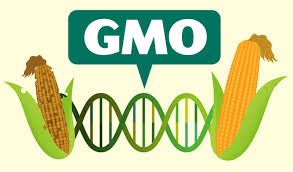GMOs the inconvenient truth!
By Jose Fuentes/MS/Blogger/Researchet
The inconvenient truth about Gmos has been ubiquitously questioned everywhere!
I remembered on one section of my speeches, I always ask to my audience, GMOs friends or foes?, then shout at my audience: repeat the 3 most horrible words that come out of every conscious food shopper and dieter. I said: give me a G! give me an M! give me an O!
G.M.O. G.M.O.! I ask what these letters stand for and the answer is of course the same, ‘genetically modified organism’. First launched commercially in a large scale in US agriculture in 1996, GMO’s are typically plants or animals whose genomes have been modified by the addition of one or more genes from another species. From the outset they have been met with controversy and resistance dubbed “frankenfoods” and subjects to boycotts and protests that continue to this day in many countries.
Opposition was led by environmentalists who asserted that GMOs and foods would cause a range of harms. They argued GMOs would damage the environment because some were bred to withstand weed killers, which would then be used to excess. Perhaps most crucially, many opponents claim that genetically modified foods were threat to human health, causing a higher incidence of everything from cancer and autism to diabetes and obesity. This wide range indictment took its toll. In a matter of years. The main developer and proponent of GMO seeds the Missouri-based agrochemical and biotech company Monsanto, became a byword for corporate evil in much of the world
As a science researcher, I know these arguments well because, in those early years of GMO development, I saw many spoken activists against the new technology. They trespassed to destroy test fields of GMO crops, lobbied to have foods containing genetically modified foods ingredients banned in super markets, I saw and wrote of activists helped to organize the world’s first campaign targeting Monsanto.
Since then numerous countries from Russia to Peru, now entirely ban genetically modified crops from being cultivated. Only one GMO food corp, an insect resistant corn, has ever been approved from use in Europe, and most European countries ban anyway. Only a handful of African countries permit any GMO’s at all. China and India allow their farmers to grow genetically modified cotton but little else.
However these are my latest findings: In the US, laws have passed in several states and by congress have mandated labeling for GMO foods. Through transparency in these matters is a good thing, it is often paired with campaigns of disinformation against GMOs, so, thus, the reason why I decided to write on this platform. Such as the claim aim that they might transfer allergenic proteins (they don’t). Meanwhile the voluntary emblem of the Non GMO project has proliferated on products across grocery shelves, proudly displayed as banner or supposed purity. But what if the GMO’s were false and the anti GMO campaign has deprived most of the world of a crucial life improving technology and has shown the readiness of many environmentalists to ignore science when it contradicts their prejudice?. That’s not the example we need now as the planet faces the very real threat of climate change.
Contrary to our initial fears, the overall impact of genetically modified corps has been to dramatically reduce the toxicity of pesticides sprayed by farmers. Corps such as BT corn, so called because it incorporates proteins toxic to insects from the bacterium Bacillus thuriengienisis, have enable farmers to rely less on sprayed insecticides. A meta-analysis combining the results of nearly 50 peer reviewed studied, was published in 2014 in the highly regulated journal PLOS one. It concluded that crops used 37% less chemical pesticide (that is, both insecticide and herbacide) than conventional versions of the same crops, thanks largely to the new crops internal biological protection against insects.
Pesticide reductions have been especially notable in developing countries. In Bangladesh for instance, smallholder farmers have benefited from BT varieties of eggplants, In the past they often sprayed their crop with toxic chemicals as many as 100 times in a season to fight off pests. The GMO eggplant has enabled them to dramatically reduce insecticide spraying, in some places almost to zero.
And the GMO seeds produce perfectly well.
Those Bangladeshi farmers save and share their new BT eggplant seeds, helping their neighbors and extended family, also to produce pesticide spraying. Many crops now in developing African countries, such as drought tolerant corn and disease resistance banana and cassava , will be sold royalty free by local seed companies in an effort to improve their livelihood of subsistence farmers and reduce poverty.
One of their most exploded myths is that GMO foods are bad to our health. Doctored graphs showing purported correlations between rates of autism and GMO crop adoption, or suggested links among genetic engineering and cancer rates, have become wide spread internet memes. A 2015 study by the pew research center found that only 37% in the US adults in the general public believe that it is safe to eat genetically modified foods, as compared with 88% of American scientists.
Would this be blamed to the Anti Gmo activists who have peddled a great deal of misinformation to the general public, or blamed scientists in the US who are paid by this companies to do research for them and need to hide true facts?. And for that reason they believe there is no basis for the health concerns that have long bedeviled GMOs.
A massive 2016 report by the U.S. National Academy Of Sciences concluded that, the data do not support the assertion that have cancer rates have increased because of consumption of products of {genetically engineered} crops. Moreover patterns of change in cancer incidents in the US are generally similar to those in the United Kingdom and Europe, where diets contain much lower amounts of foods derived from these corps. The NAS reached the same conclusion for obesity, diabetes, celiac disease various allergies, and autism. Pointing to no evidence of higher rates in countries that ue GMOs.
The view that GMO foods have not discernible impact on health is now the well established consensus across the international scientific community. Including now the French academy of science, and others. Which makes it hard for me to validate my past thoughts on this subject. When I thought GMOs were the evil of human power corporations.
We are facing now 10 billion people in the world who demands a more cleared headed and genuinely progressiveapproach. The great challenge in my view, will be to produce enough food for this tremendous surge in population while also protecting enough wilderness areas to maintain some measure of the planet’s fast depending biodiversity. We simply cannot feed the high consuming population of the future using the low productivity methods of the past.
Science already has helped humanity to abolish the specter of famine. If it is not to reappear in decades to come in tandem with ecological collapse, we must allow scientists to keep doing their jobs, eloquently and honestly. They shouldn’t be hinder by those who having already filled their bellies, have the luxury to indulge in righteous misinform campaigns against promising new foods technologies.
But as usual, I informed you decide!.
Check our blog on exercise and nutrition for cancer patients. CLICK HERE
Leave your comments below!

